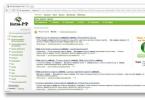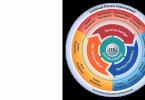The reason was reports that China's Kumho plant is using too much material from waste tires in the production of new tires, which can lead to tread tears, the Chinese government said in a statement.
Kumho is one of the largest tire manufacturers in China, where the company's market share was estimated at 16% last year. China also accounts for about 30% of Kumho's total sales.
Even though Lee Han-Seop, director of Kumho China, publicly apologized on CCTV, which was the first to report the defective tires, many consumers expressed their distrust of the company, and some even demanded that responsibility of those who were involved in the production of low-quality tires. Mr Li promised that defective tires would be recalled, but did not specify when or how many tires would be recalled.
After an inspection at the Tianjin plant, Kumho admitted that some internal standards were not being fully met, after which both the plant manager and the employees responsible for quality control were fired.
In a statement, Kumho said it had notified the relevant authorities about the voluntary tire recall and promised to cooperate fully with the Chinese government, adding that it would "view all product quality issues solely from the consumer's point of view."
In the same statement, Kumho at the same time emphasized that it did not use recycled rubber, but rubber residues left over from tire production, and that it does not contain chemical additives.
Kumho noted that this rubber is used by all tire manufacturers, and that it fully complies with production standards. At the same time, the company acknowledged that the Tianjin plant used more of this rubber in production than prescribed by internal standards. "The ratio of residues to new rubber in Tianjin reached 1/2, while according to the company's internal standards, it should not exceed 1/3," Xinhua quoted a Kumho spokesman as saying.
“We acknowledge that we had some product quality issues at the Tianjin plant, but the use of rubber left over from production is not unusual in the tire industry,” a Kumho spokesperson also said.
Be that as it may, Chinese buyers were not satisfied with Kumho's explanation, and according to Xinhua, many of them postponed the purchase of a new car until all defective tires were recalled. Auto dealers in Shanghai are also complaining that their customer hotlines are overwhelmed by calls from customers concerned that their tires may also be defective.
Chinese auto companies such as Chery, Great Wall, Dongfeng, as well as local branches of Hyundai, VW and GM, were quick to come out with claims that the Kumho tires fitted to their vehicles were not produced at the Tianjin plant. Great Wall said it was refusing to cooperate with Kumho at all.
Market analysts are confident that this scandal will inevitably damage Kumho's reputation in China, which is one of the most promising markets for the Korean company. However, many experts note that it is not yet clear whether Kumho will be able to regain the trust of its Chinese buyers and customers among automakers.
So far, experts note that no damage has been done to the reputation of Hyundai, one of Kumho's key partners, but Hyundai may want to prevent such a risk by switching to tires from another company, such as Hankook.
"In the original equipment (OE) sector of China, Kumho's market share (23%) was the largest, but due to CCTV reports, this position may change," Park Sang-won, an analyst at the Seoul-based agency, told Xinghua. Eugene Investment & Securities. “Kumho has a strong presence in the OE sector, which usually drives up sales in the aftermarket. Now the company can still minimize the damage to its reputation, but only on the condition that it continues to cooperate with car companies.”
“Kumho reportedly used leftover rubber rather than recycled materials, and if the misunderstanding is cleared up, the situation may not hurt the company as much,” added Lee Sang-hyun, an expert at NH Investment & Securities. “As for Hyundai, this company will not be hurt, as it could easily start buying tires from other manufacturers if Chinese buyers are more suspicious of Kumho products.”
About company Kumho (Kumho)
Tires Kumho available in summer, winter and all-weather versions. The company produces all-season tires for both high-speed and comfortable driving, as the tire tread pattern provides low noise levels and excellent grip on the roadway. Aggressive pattern and deep tread make for a comfortable ride on the highway and off-road. The central rigid rib gives directional stability. The lateral grooves and peripheral grooves of the Kumho provide excellent grip on any road. Winter tires are available in several versions for different road surfaces.
The company arose after the Korean-American war of 1950-1953 from a small (two cars) transport company. Since 1991, Kumho has been a member of the top ten tire manufacturers in the world. Continuous research and development, 300 test facilities in South America, Japan, Europe and South Korea keep the company consistently leading the world's tire manufacturers with the most advanced technology. The fact that two plants in Korea produce 36 million tires a year speaks about the safety and quality of the products. Rubber Kumho "shoes" cars, planes, buses, agricultural and industrial machinery, racing cars. Kumho tires have repeatedly proved the highest sporting performance. Today, the company claims to produce tires for Formula 1.
Manufacturer:
Kumho Tires Co. Inc.
The country:
South Korea
Company `s logo

President and Executive Director
Yong Ho Kim
HQ (headquarters) Gwangju plant555, Sochon-dong, Gwangsan-gu, Gwangju, Korea (TEL: 062-940-2114)
Representative office address in Russia
MOSCOW
OFFICE# 604, ENTRANCE 3,
WORLD TRADE CENTER
KRASNOPRESNENSKAYA NAB. 12,
123610 MOSCOW, RUSSIA
TEL: 7-495-258-1133
FAX: 7-495-258-1133
E-mail (E-mail)
About company
In Korea, in 1946, in the city of Gwangyu, in the south of the Korean Peninsula, an enterprising local resident, In-Chun Park, founded a transport company. At first, its fleet consisted of only two old Ford trucks, but the company quickly developed.
Soon a new war began, which lasted from 1950 to 1953, as a result of which Korea was divided into two states. Mr. Park's business was destroyed. However, he created a new company, which eventually grew into Korea's largest long-distance bus company, Kwang Ju Highway Lines.
In 1960, Ying-Chun Park decided to start a tire manufacturing company, Kumho Tires. In 1965, the first Kumho tires were exported to Thailand.
In the mid-60s, the company enters the US tire market, having received an operating permit from the Department of Transportation. Tire production volumes are constantly increasing, and in 1974 a new plant in Gwangyu is put into operation, where the production of the first radial tires begins.
In 1975, Kumho developed a brand for the European market - Marshal. Develops tires European Technical Center (Birmingham).
In 1976, the company received a certificate allowing the manufacture of tires for the US Air Force. In addition to greatly improving the company's financial situation, this contract served as an excellent publicity campaign for Kumho. And in 1978, the company opens its first representative office in Europe and takes part in the largest Essen tire exhibition, where its products are highly appreciated.
In order to keep up with the times, in the early 80s, the latest research center for those times was created in the city of Gwangyu, where all the company's developments were tested. The steady growth in sales of Kumho tires led to the construction of another factory in Goksaenggon in 1989.
In 1991, Kumho is one of the top ten most popular tire manufacturers in the world. In parallel, the production of tires for aviation equipment continues.
Throughout the 1990s, Kumho received virtually all of the world's quality certifications for its products. All plants of the company also received environmental certificates. In 1999, the company was one of the first in the world to develop a tire that can be used after a puncture for some time.
By 2002, Kumho ranked second in a survey conducted by an authoritative automotive publication in terms of popularity among consumers.
In 2003, an automatic tire manufacturing plant was built in Pyungtak, and Kumho was ranked among the top nine tire companies in the world.

As an advertising campaign, in 2005, the world's first colored Smoke Tire tire was produced, which, in addition to having its own color, emits red smoke during active braking and acceleration, which street racers really liked.
In 2007, Kumho enters into a contract with Mercedes-Benz for the supply of tires. In the same year, two more important events for the company take place: a car shod in Kumho rubber becomes the winner of the iconic 24 Hours of Le Mans race, and the company presents the world's first aromatic tire.
In 2008, the company's tires receive the "Recommended Tire" category in Germany.
In Russia, the popular magazine Za Rulem constantly tests various tires. In 2008 and 2009, Kumho summer tires showed the best results. In terms of sales, Kumho competes confidently with Michelin and Continental. Volkswagen has chosen Kumho tires for some models.
Kumho Business Group was founded in 1946 by Mr. Ying-Chun Park as a small trucking company with two Ford Taxicabs. Demand was strong and business boomed before being destroyed by the Korean War in 1950-1953. After the war, Mr. Park started his business again and created what is today the largest intercity bus transportation company, Kwang Ju Highway Lines, and the largest and best tire manufacturer, Kumho Tires.
Over the years, the Kumho Group has diversified its business into many areas, some of which have proven themselves to be internationally competitive, such as Kumho Tire and Asiana Airlines Inc.
Kumho has made a huge contribution to the development of the Korean and global tire industry. Despite its short history, Kumho has achieved international recognition and success, receiving the E1 seal of approval from the European Economic Committee; The company has succeeded in developing the 45, 40, 35 and 30 series of ZR-level tires for racing and high-tech cars, as well as, for the first time, for commercial aircraft. As a result, in 1992, Kumho became one of the top ten tire manufacturers in the world. Kumho has been successful in developing superior tires for all types of vehicles, including high-tech vehicles, passenger cars, sports vehicles, recreational vehicles, light trucks, heavy trucks and buses, industrial machinery, agricultural machinery, mining machinery, construction machinery and aircraft. Kumho Industrial Company Limited, produces over 36,000,000 tires annually at its two factories, Kwang Zhu (built in 1974) and Koksang (built in 1989). With QS9000, ISO9001, ISO9002, Boeing D1-9000 BQS, BS7750, and ISO14001 certifications, both factories guarantee quality control, and furthermore, thanks to a strong R&D program that employs about 600 people and more than 300 test devices at research sites in South Korea, Japan, Europe and South America, Kumho holds the position and leads the world with state-of-the-art tire technology, safety and quality.
 In recent years, Kumho has focused its activities on participating in motorsports. Kumho has signed a five-year contract with Circiut Park Zandvoort and is the official tire supplier for the Marlboro Masters Formula III. Kumho's sporting technologies developed in Formula 3 Racing are used by the company in the serial production of tires for passenger cars. Since 1991, the South Korean company Kumho has been one of the top ten tire manufacturers in the world, according to the officially published "Tire Business", one of the most respected tire magazines published in the United States.
In recent years, Kumho has focused its activities on participating in motorsports. Kumho has signed a five-year contract with Circiut Park Zandvoort and is the official tire supplier for the Marlboro Masters Formula III. Kumho's sporting technologies developed in Formula 3 Racing are used by the company in the serial production of tires for passenger cars. Since 1991, the South Korean company Kumho has been one of the top ten tire manufacturers in the world, according to the officially published "Tire Business", one of the most respected tire magazines published in the United States.
The company's line of models includes sports high-speed comfort class tires, as well as first-class tires for SUVs. In addition to developments in the field of safety and reliability of driving, Kumho engineers play a very important role in tire design, as a serious addition to the overall appearance of the car. The combination of these factors has made Kumho tires particularly attractive to car manufacturers.
Europe's largest car manufacturer, Volkswagen, has signed a contract with Kumho to supply 200,000 tires a year for the new VW Polos, which have been produced in the UK since February 2002. Kumho tires are also equipped with cars from manufacturers such as Hyundai Motors Corporation, Renault Samsung Motors Co. Some Chevrolet Aveo vehicles are also equipped with Kumho tires.
 Kumho Tires has been selected by Daimler-Chrysler AG as the tire supplier for the second generation Mercedes-Benz A-Class.
Kumho Tires has been selected by Daimler-Chrysler AG as the tire supplier for the second generation Mercedes-Benz A-Class.
Kumho will supply its SOLUS KH15 in size 185/65R15 to power the new hatchback, which is being built at Daimler-Chrysler's plant in Rastatt, South West Germany. Kumho Tires is the first Korean tire manufacturer to work with the automotive giant Daimler-Chrysler. According to a spokesman for Kumho Tires, the company was awarded the contract because the products meet Daimler-Chrysler's technical and quality criteria.
The KUMHO ECSTA KH11 tires were selected by the Chrysler Group as original equipment for the Chrysler Sebring in 2007.
 Kumho is supplying its tires as original equipment for the US-market version of the Sprinter van. The Sprinter, which is sold in the UK and Europe markets with the Mercedes-Benz logo, has been branded Dodge & Freightliner in the US since the first quarter of 2007.
Kumho is supplying its tires as original equipment for the US-market version of the Sprinter van. The Sprinter, which is sold in the UK and Europe markets with the Mercedes-Benz logo, has been branded Dodge & Freightliner in the US since the first quarter of 2007.
Under the contract, LT215/85R16 Kumho Road Venture KL78 tires will be fitted to the front axle, as well as to the rear axle of the vehicle, which uses dual tyres.
Kumho tires are also well-deserved fame among owners of sports and tuning cars.
Kumho tires have already settled quite firmly on the shelves of Russian stores, their sales are slowly but surely growing every year.
However, many Russian car owners are wondering - who is the manufacturer of Kumho tires, where are they produced and where do they get to Russian stores?
From this article you will learn:
The Tire First site has collected all the information about Kumho tires.
Brand and positioning
The Korean tire brand appeared immediately after the Korean Peninsular War in 1960, was founded by businessman Park Icheon. Today, Kumho Tire sells its tires on all continents and is one of the 20 largest tire companies in the world.
Kumho's tire lineup includes both "economy" and "premium" tires designed for SUVs, heavy executive sedans and very fast sports cars. In addition, the Korean concern produces tires for aviation and various special vehicles.
Today, as evidence of the high quality of its products, the famous Korean tire brand Kumho can boast of the fact that 25% of sports cars produced worldwide are equipped with its tires on the assembly line.
Where are Kumho factories located?
The main production sites of the Korean tire giant are concentrated in Asian countries. The concern has three plants in its homeland (in the cities of Gwangju, Kokson, Pyeongtaek), three plants in China (in the cities of Changchun, Nanjing, Tianjin) and one in Vietnam.
Most of the tires that hit the shelves in Russia are imported from South Korea and China.
The tire concern also has several research centers where new tire models are being developed. The main center is located in the homeland, in the city of Gwangju, three more centers are located in the USA, Britain and Germany and one more in China.
Technologies and developments
Tire concern Kumho has been cooperating for many decades with all kinds of automotive competitions, including the famous Formula 1, thanks to which it has accumulated a lot of experience in the development of sports tires.
What is worth is the fact that the world's first mass-produced sports tire with a diameter of 32 inches appeared under the Kunho brand.
Thanks to its five research centers, as well as solid experience in the development of sports tires, the Korean concern regularly pleases its customers with new sports tires adapted for daily use.
At the same time, the tires of the Korean brand from the "economy" line also do not go unnoticed. They contain solutions that have already been “run-in” on more expensive models, which adds “economy class” tires under the Kumho brand in the eyes of potential buyers.
Benefits for buyers
Kumho tires already have a whole army of fans in Russia. This was largely due to the success of the company in the field of motorsport, as well as very thoughtful tire models, the combination of technical characteristics of which were very attractive to many car owners.
It must also be said that the Korean concern has always led (and now leads) a very thoughtful pricing policy for its products. The cost of Kumho tires has almost always been lower than the cost of well-known brands with a century of history. However, the quality of the tires was quite comparable.
Today, when buying the products of the Korean tire concern, the car owner receives very high-quality and well-thought-out tires, which contain a lot of modern technical solutions. But at the same time, it pays noticeably less than if you chose tires from a brand from the top 5.



